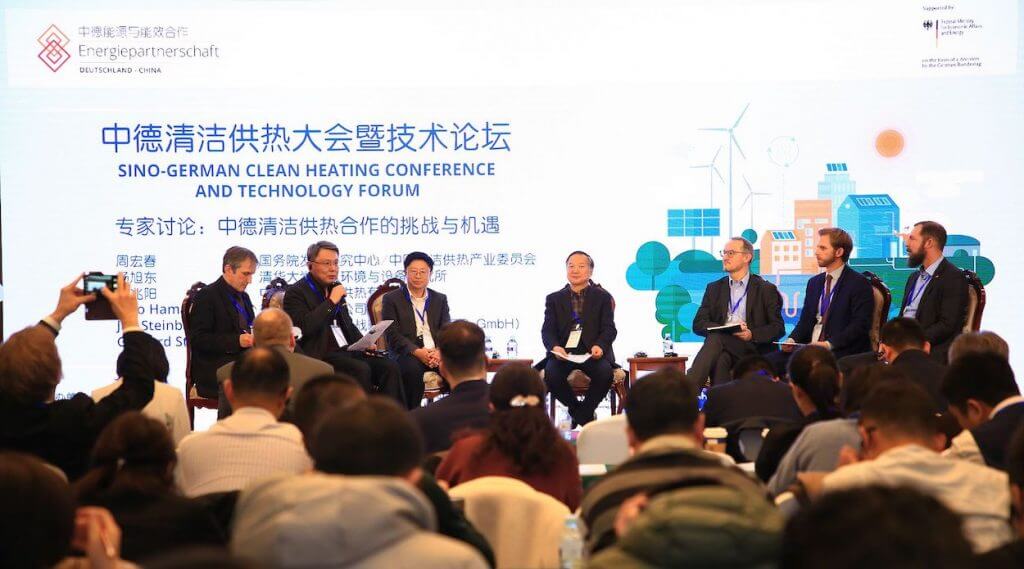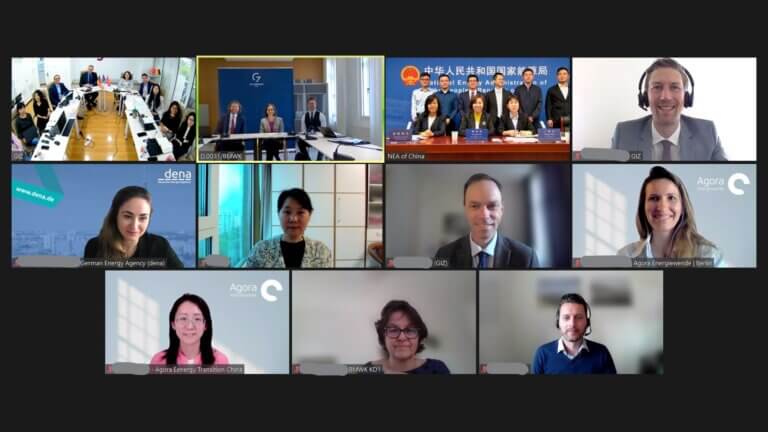In Northern China’s harsh winters, coal-based district heating in cities and scattered coal use in rural areas are the main causes of poor air quality. Hence, the twin challenge of heating millions of houses, while at the same time switching towards a clean and sustainable heating system is an urgent topic for Chinese policymakers, academia, industry and civil society alike. The “Sino-German Clean Heating Conference and Technology Forum” addressed this issue on November 26 and discussed how German sustainable heating solutions can help to push forward China’s heating transition.
China and Germany are pioneers in energy transitions towards green and sustainable economies. While the share of renewable energies in the both countries’ power systems has been steadily increasing over the last decades, much less attention has been put on the heating sectors. However, space heating, domestic hot water heating and process heating account for more than 50% of total energy consumption. Hence, the heating sector has to play an important role in the holistic energy transition towards a low-carbon economy.
“We must think beyond the electricity sector”, said Mr. Moritz Lumma, Minister Counselor of the Economic Department, German Embassy, in his opening remarks. “[…The] heating transition depends on moving to more sustainable technologies in all buildings.“ Mr. Lumma further outlined how Germany’s push-and-pull approach of a compulsory utilization of renewable heating technologies for new buildings, while limiting maximum primary energy consumption, has achieved to employ around 50% of sustainable and renewable heating in new buildings, today. He pointed out: “[Germany’s] 2020 goal is a 14% renewables share in the heating sector.”
Not only Germany, also China has set ambitious goals. Within the “Clean Heating Action Plan for Northern China” (2017-2021), the government aims at reducing inefficient coal heating by 150 Mt until 2021. Measures include, for instance, expanding the application of power-to-heat technologies such as heat pumps to 1.5 billion m2. Government representatives and experts from academia and the business sector joined the conference and discussed challenges and opportunities for Sino-German cooperation on clean heating.
One of the event`s highlights was the launch of the study “German Sustainable Heating Solutions – Best Practices and Applicability in China”. The study, conducted by renowned German experts from Fraunhofer Institute for Systems and Innovation Research ISI, ifeu – Institute for Energy and Environmental Research and the Institute for Resource Efficiency and Energy Strategies (IREES) identifies ten German best practice solutions for sustainable heating and discusses their applicability in the Chinese context.
In the afternoon, five German companies presented their heating solutions to an audience of 150 representatives from utilities, energy service companies and the heating industry:
- Passive house technology (Siemens)
- Natural gas condensing boiler (ELCO)
- Heat pumps (Stiebel Eltron)
- Electro-thermal energy storage (MAN Energy Systems)
- Combined cooling, heating and power (CCHP) solutions (MWM)
The on-site exhibition of German companies provided the opportunity for Chinese and German industry representatives to have in-depth conversations and build networks for future Sino-German cooperation.
Furthermore, the Sino-German Energy Partnership was proud to award the 1st Sino-German Energy Efficiency Cooperation Projects Award to five Sino-German cooperation projects under the auspices of the German Federal Ministry for Economic Affairs and Energy (BMWi) and the National Development and Reform Commission (NDRC). The winning projects were chosen by a Sino-German expert jury. Click here for more information about the award ceremony.
The event was hosted by Deutsche Gesellschaft für Internationale Zusammenarbeit (GIZ) GmbH, co-hosted by Electric Power Planning & Engineering Institute (EPPEI), Clean Heating Industry Committee (CHIC), German Industry & Commerce Greater China (AHK) Beijing and co-organized by the ESCO Committee of China Energy Conservation Association (EMCA) in the framework of the Sino-German Energy Partnership.
For more information about joining the Sino-German Cooperation on Sustainable Heating, please contact Maximilian.ryssel(at)giz.de.



